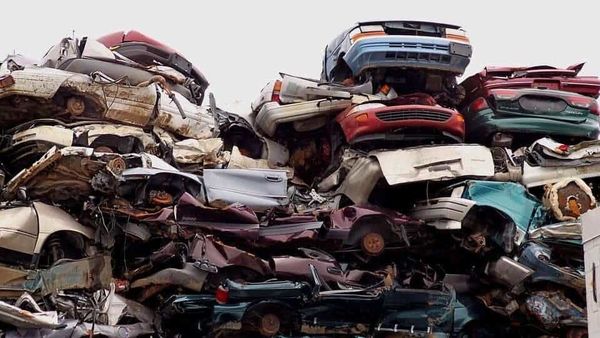Why vehicle scrappage policy is next big thing in the Indian auto industry?


In the last decade, the Indian auto industry has become more matured and witnessed a host of milestones that not only turned the industry into a stronger and more valuable segment in the country's manufacturing sector but changed many things as well. From the BS-VI emission norms implementation to new axle norms, from the adoption of electric vehicles to the penetration of CASE - there have been many milestones, the domestic auto industry has seen in the last 10 years. The latest among these is the vehicle scrappage policy.
Also Read : Nitin Gadkari announces vehicle scrappage policy: Five things to note
After the BS-VI emission norm rollout, vehicle scrappage policy is the next big thing that has created quite a ripple in the country's auto manufacturing industry. After being in the discussion phase for quite some years and being in demand from the auto industry stakeholders, finally, the policy is seeing daylight.
After a long wait, the central government has finally announced the vehicle scrappage policy. Union Minister of Road, Transport and Highways Nitin Gadkari introduced the vehicle scrapping policy in the Lok Sabha last week.
Here are the factors related to the vehicle scrappage policy that impacts the vehicle owners, auto manufacturers, and other stakeholders of the industry.
Demand creation
The vehicle scrappage policy is expected to create demand for new vehicles in the Indian auto industry that has been suffering from lack of demand for the last two years, first due to the global economic meltdown and lately due to the Coronavirus pandemic.
While the passenger vehicle and two-wheeler segments have witnessed the re-emergence of demand, demand and sales in the commercial vehicle segment are still lacklustre. As the gross vehicle weight or GVW of the heavy tonnage trucks under the revised axle loading norms were increased, that too impacted the demand for the heavy trucks bothering the truck manufacturers. However, implementation of the vehicle scrappage policy would bring a change in that scenario.
Less pollution
With the older vehicles about to go off the roads replaced by the new and lesser polluting vehicles, expect the vehicular pollution contribution to be reduced substantially, once the vehicle scrappage policy is implemented.
As per the vehicle scrappage policy, private vehicles that are older than 20 years and commercial vehicles older than 15 years will undergo a mandatory automated fitness test. The old vehicles are estimated to cause 10-12 times more pollution than the new vehicles. Apart from that, the scrappage policy also applies to the government and PSU vehicles that are older than 15 years.
OEMs to witness business boost
According to estimates, the vehicle scrappage policy would cover around 51 lakh light motor vehicles older than 20 years or more, along with 34 lakh LMVs older than 15 years or more. Besides that, around 17 lakh medium and heavy motor vehicles that older than 15 years are also expected to go off the roads. So far, around 1.02 crore vehicles that are majorly polluting would go off the road under the scrappage policy.
Phasing out of these old and polluting vehicles is expected to increase the demand and sales in the domestic auto industry. This would also result in the overall turnover growth of the auto industry by around ₹5.5 lakh crore from the current ₹4.5 lakh crore.
Reduced import cost with increased recycling
The phased-out old and unfit vehicles will create a huge amount of materials eligible for recycling. Using that recycled material will help in reducing the prices of the new vehicles as the production cost will be reduced because of lesser dependency on imported material. This will save the auto companies and component manufacturers would be able to save production costs for their products.
The Indian auto industry currently generates ₹1.45 lakh crore revenue from exports. Post-implementation of the scrappage policy, this figure could increase to around ₹3 lakh crore. Raw materials used in manufacturing automobiles would see a significant drop in their prices. These include such as steel, plastic, rubber, aluminium, etc.
Also check these Cars
Benefits for vehicle buyers
As of now, there is only one direct benefit announced for the vehicle buyers under the vehicle scrappage policy. The customers will receive a 5% rebate on the new car purchase after sending their old cars to the junkyard. However, MoRTH claims that there are more incentives on the card and one of them could be monetary compensation.
Target to make India global auto manufacturing hub
The vehicle scrappage policy is aimed at making India a global automobile manufacturing hub. In that case, the country could witness a significant reduction in the prices of the vehicles that are manufactured locally making them more affordable. This will eventually benefit the common buyers as they will spend a shell out a lesser amount for buying new vehicles.
3.7 crore job creation expected
According to an estimate, MoRTH claims that the vehicle scrappage policy would attract investments close to ₹10,000 crore. Besides that, the ministry also expects that the scrappage policy will create around 3.70 crore jobs in the organized sector after the policy is implemented.
While there will be scrappage centres that will require manpower to be operational for scrapping the old vehicles, the auto manufacturers and auto component manufacturers too would employ more people in the long run as the demand and production would increase post the policy implementation. Also, the recycling centres too would generate employment.








 1769.0 cc
1769.0 cc 20.0 kmpl
20.0 kmpl















